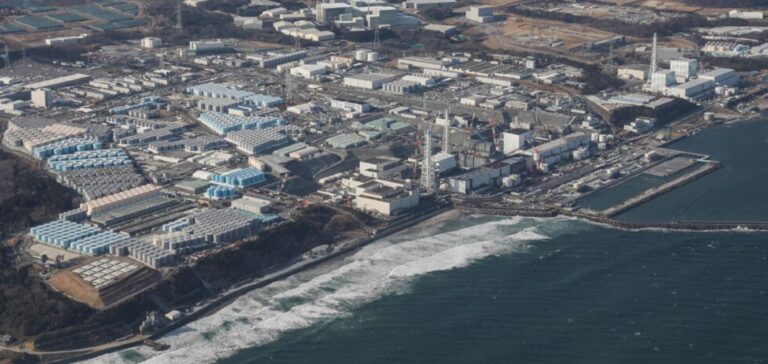The first period of water discharge into the sea from the damaged Fukushima nuclear power plant, an operation by Japan that has sparked fury in China, will end on Monday as planned, the group in charge of operations has announced.
Rigorous Control of Fukushima Water: Levels Below Strict Standards
Samples were taken and analyzed daily to measure the radioactivity of the discharged water, and this level was consistently below the set ceiling of 1,500 becquerels/liter, Tepco announced in a statement released on Thursday. This ceiling is 40 times lower than the Japanese standard for this type of discharge into the sea, and is also almost seven times lower than the limit set by the World Health Organization (WHO) for drinking water (10,000 Bq/L).
The water that Tepco began discharging into the Pacific Ocean on August 24 comes from rain, groundwater and the injections needed to cool the cores of the three reactors at the Fukushima Daiichi power plant (northeast Japan) that melted down after the 2011 tsunami. For a long time, this water was stored in huge tanks on the plant site and treated to remove all radioactive substances except tritium, which experts believe is only dangerous in very high, concentrated doses.
Tepco therefore dilutes the tritiated water extensively with seawater before discharging it into the ocean, to ensure that its level of radioactivity does not exceed the target limit of 1,500 Bq/L.
Recent Fukushima Water Discharge Events
The alarm from a leak detector in the filtered water pipes went off on Wednesday, but an immediate inspection “confirmed” that it was a false alarm, Tepco said in its statement. The discharge into the sea has been validated by the International Atomic Energy Agency (IAEA). But the launch of the process sparked a diplomatic crisis between Japan and China, which suspended all imports of Japanese seafood products at the end of August.
A total of around 7,800 m3 of tritiated water will have been evacuated during this first 17-day phase. At the end of August, Tepco announced plans for three further similar operations until the end of March 2024. In all, Japan plans to discharge over 1.3 million m3 of tritiated water from Fukushima into the Pacific Ocean – the equivalent of 540 Olympic-size swimming pools – but in an extremely gradual manner, until the early 2050s, according to the current schedule.
Why does it matter?
This step marks a significant advance in the process of managing contaminated water at Fukushima. The successful completion of the first phase of discharge into the sea testifies to Japan’s ability to effectively treat and monitor radioactive water from the damaged plant.
From an economic and financial point of view, this water evacuation contributes to the decontamination of the region, which could open up positive prospects for the revitalization of the affected area. However, the diplomatic crisis with China underlines the international implications of this operation and the need for ongoing dialogue between the countries involved.
In the energy market, this approach could also influence global nuclear policies and environmental standards for similar future operations. Careful monitoring of radioactivity in discharged water remains crucial to ensure long-term safety.
All in all, the end of the first phase of the Fukushima sea discharge raises considerable economic, financial and environmental stakes, while underlining the importance of international relations in the nuclear context.





















